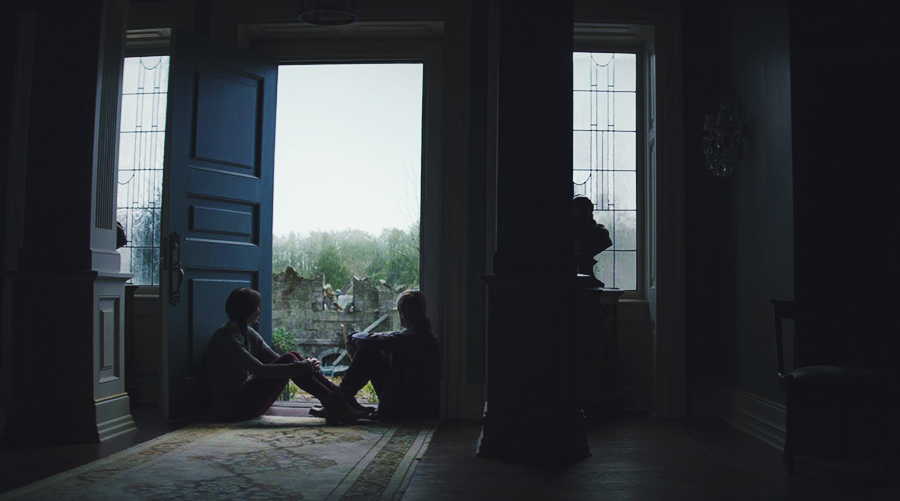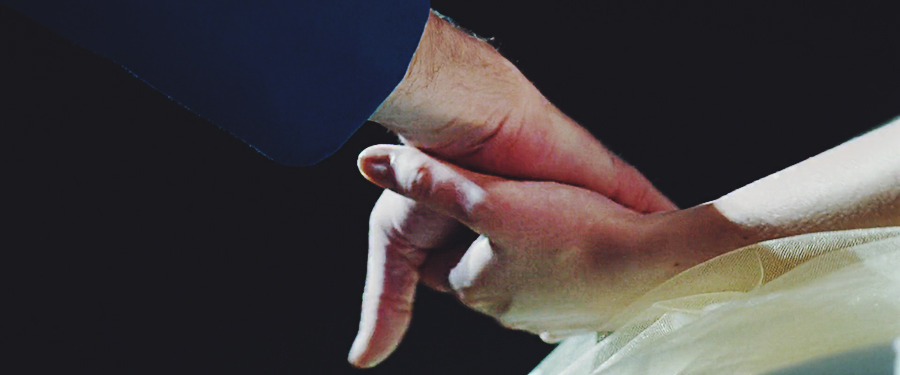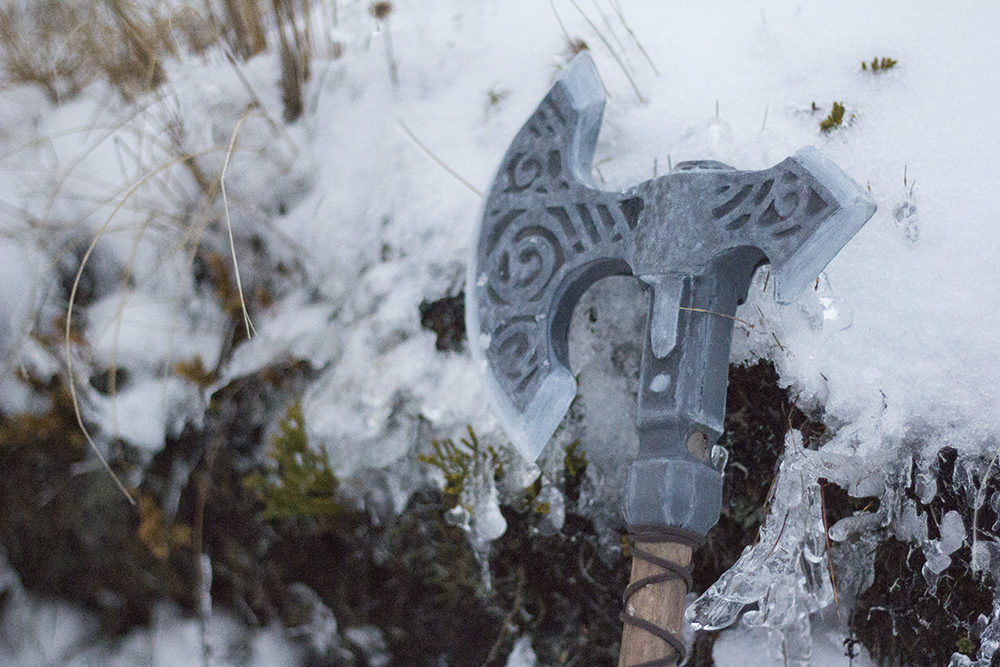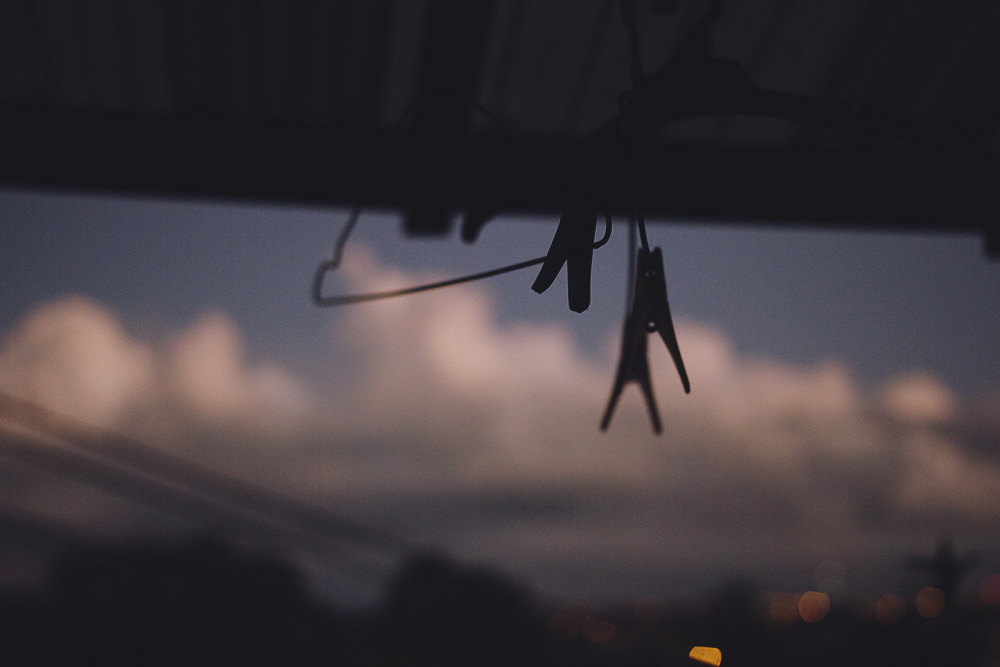
A Dandelion in Spring: The Power of Support
When I first read The Hunger Games at sixteen, I hated the book. As a young girl struggling with asexuality and aromanticism, I had been plagued by love triangles or relationship drama in almost every Young Adult novel I picked up. At the time, I was hyper-sensitive to hints of love triangles in stories, and so I severely misunderstood Katniss’ character, completely missing what was actually important in her relationship with Peeta: the support he offers her as someone who genuinely cares.
The narrow thinking that creates the idea of a female character needing to choose between two male characters is a serious issue in fiction aimed at young adults. While it’s a topic for another post, this does sometimes alter people’s interpretations of the series, creating kneejerk reactions like my own initial one, and it’s a trend that needs to be questioned.
Katniss is much more than her potential love interests, the entire series being about far more than her feelings towards Peeta or Gale. Trivializing any of the characters by their level of attractiveness or romance potential entirely misses the point. Katniss’ fluctuating relationship with Peeta is a driving factor within the series, and a large part of the woman she becomes.
While Katniss is undeniably a powerful character, her strength is not isolated. The idea that female characters are only strong when they lack attachments, that their capacity for love is a weakness, is one that creates damaging perceptions of what women—and people in general—should be.
The Strong Female Character trope that has become so prevalent has a habit of taking a female character and removing any sense of soft femininity, handing her a big gun, an aggressive attitude, and not much else. This tends to last until she becomes a trophy for the male character, her characterization doing a 180 as she suddenly loses all power she seemingly had. They are hollow characters, often created by men who don’t seem to understand that women are multifaceted people.
Bijhan Valibeigi, in an article for Black Girl Nerds, defines a Strong Female Character (different from a female character who is strongly written) as a “character whose exterior qualities and achievements are designed to stand in contrast to her inner feminine vulnerability. She is given value because of her masculine traits; she is kept from being the protagonist because of her feminine traits.” Katniss is clearly not one of these characters, but many raise her above other YA heroines with praise of her masculinity, while ignoring or devaluing her femininity.
The notion of “feminine” or “masculine”* traits making a character better, and that any one trait is more inherent in any particular gender is ridiculous, and The Hunger Games throws these assumptions out from the get-go. Katniss is often seen as having more masculine attributes because of her hunting, her tendency for violence, and her lack of care for romanticism. The series is riddled with reminders of how much more like her father she is compared to her sister and her mother.
Peeta, on the other hand, is portrayed with traits that tend to be seen as more feminine; he is kind, he is soft, and his talents lie in speaking and painting. Their strengths and weaknesses in these areas complement the other. Peeta saves Katniss’ life with his propensity for kindness and his way with words, while Katniss saves Peeta’s with her hunting knowledge and her fighting ability. His warmth and tenderness is a foil to Katniss’ coldness and her struggles with empathy.
But to define Katniss by her masculine-coded traits, and vice versa with Peeta, is to only see one side of the characters and ignore what makes them so compelling. That they are complex characters with multiple characteristics is what makes them so identifiable for real young adults, and what makes their relationship throughout the books hold real weight. To say Katniss hates expressing femininity ignores her adoration for the clothes Cinna creates for her, and the power she finds in looking radiant—she despises the role she is forced by the Capitol to fill, but she describes Cinna’s work in glowing terms.
When encountering people she sees as being weak, Katniss’ first instinct is to nurture. She is driven by this desire to protect those she perceives as needing her, coupled with her inability to survive without those she loves. While Peeta may lean towards not wanting violence, he is shown as being physically strong, contrasting with his delicate brushwork both on cookie and canvas. He is just as willing to kill for his sake and the sake of those he loves as Katniss. Yet, despite his strength, Katniss constantly feels the need to protect him.

Katniss’ journey is an important, if not horrific, one. One of the clearest messages of the series is that even the hero of the rebellion needs support from those she loves, whether family, friend, or something unnamed. Nobody can survive in a vacuum, the idea that a female character must to be considered “strong” is blatantly wrong, and Katniss utterly disproves the concept. She is strong not because she is alone—and not because others prop her character up—but because she is able to love deeply and crave comfort while still being an independent character.
From the moment the two are reaped, Peeta attempts to help Katniss. He tells Haymitch her strengths, he boosts her image with the Capitol audiences to aid her in getting sponsors, he joins the Career pack in the Games with the intention of keeping them from killing her. At the end of the 74th Games, when Claudius Templesmith announces the two-victor change has been revoked and Katniss instinctively raises her bow, Peeta drops his knife and expects her to kill him.
His motivations are clear: he loves Katniss. However, love isn’t always able to overcome selfishness; it is his innate kindness and his inability to see his own worth that causes him to place Katniss above himself in importance. During the first two novels, and parts of Mockingjay, his motivation stays the same, as do the parts of him that value Katniss more than his own life.
He remains a steady column for Katniss, who knows that he loves her unreservedly and with no expectations. Even when she understands how much she hurt him by faking her love in the arena, she knows he “won’t condemn [her] with a halfhearted kiss.”
“I can feel the steadiness that Peeta brings to everything. And I know I’m not alone. As badly as I have hurt him, he won’t expose me in front of the cameras … He’s still looking out for me. Just as he did in the arena. Somehow the thought makes me want to cry.”
– Catching Fire, page 42
Potentially somewhat aromantic and preoccupied by thoughts of survival, Katniss’ feelings towards Peeta are much more complex. Once the two-victor rule is announced, Katniss knows she cannot return home if she lets Peeta die, but as they hide out in the cave and actually interact, she begins to grow closer to him. By the time the Games have ended, the two are able to comfort each other through their shared trauma in a way nobody else can. They understand the horrors the other has experienced, and the nightmares that will never leave.
During Catching Fire, Peeta becomes a sort of safe haven to Katniss, someone she can trust to be kind and thoughtful no matter what. In the same way that Peeta considers Katniss someone more deserving of a long life, Katniss thinks the same of him. The Quarter Quell is a constant struggle between the two to keep the other alive till the end, not just because they devalue themselves, but because they know they cannot survive without the other. They are driven by selfishness, and by selflessness—and they are driven by love, both platonic and otherwise.
“No wonder I won the Games. No decent person ever does.
You saved Peeta, I think weakly.”
– Catching Fire, page 117
The relationship between the two young victors of District 12 is so much more than the star-crossed romance broadcast for the sake of survival. Even if they hadn’t ended up together, they would have remained important to the other for the remainder of their lives. When they begin to find real friendship during the victory tour, she feels comfort in their fingers entwined platonically. As two young people coping with massive trauma, the two cannot begin to heal alone.
For those in the real world coping with depression, or other trauma-based conditions, Collins’ understanding that Katniss needs to have people who love her and be a source of strength for her is perhaps reassuring. She is not a weak character for needing support, nor is she weak for caring about others. She is a reminder that reaching out is important when feeling isolated and scared. Peeta is a reminder that there are people who can and will find a way to help, and that love doesn’t need to have expectations.
Forced together in The Hunger Games, they eventually find themselves returned to District 12 at the culmination of the war, battered and broken and with only the other to give solace. Their ability to empathize with the other’s struggles helps them help each other, and in turn, themselves. In Catching Fire, they work on Katniss’ family’s book about plants; in Mockingjay, they create a book capturing memories about those they have loved and lost. Working together on these rituals helps Katniss and Peeta to find peace while accompanied.
When Katniss finally finds herself in love with Peeta, it’s not a surprise to her. Gale says it himself: she will pick whoever she thinks she can’t survive without. Already, in The Hunger Games, Katniss begins to realize she can’t live without the baker’s son. At the end of the war, with Prim—the one person Katniss loved beyond all else—dead, Peeta is there for her, burying evening primrose bushes so that her sister’s memory will never die.
Katniss, who initially thinks Gale’s comment about her portrays her as cold and calculating, eventually realizes just what he meant. Survival for both Katniss and Peeta at this point is more than food and shelter, it’s the need to have someone to help them bear the weight of what has happened to them. It’s the need to escape the hatred that created the Games, and fueled the war.
Peeta, from the very start, has always stood for hope in Katniss’ mind. From the bread he takes a beating to give her, to the way she believes he can kindle a rebellion against the Capitol with his words, to the strength to live she regains when she finds him planting primroses around her house.
For a girl whose life has been defined by death and the struggle to continue living, having someone to remind her that there is hope in the world is vital. He is a constant reminder that after everything she’s been through and all that she’s done, she is not alone. That none of us are ever alone.
“What I need is the dandelion in the spring. The bright yellow that means rebirth instead of destruction. The promise that life can go on … That it can be good again. And only Peeta can give me that.
So after, when he whispers, ‘You love me. Real or not real?’
I tell him, ‘Real.’”
– Mockingjay, page 388.
Like my words? You can support me on Patreon!
*I use masculinity and femininity in very binary terms here, but it’s important to note that gender is a spectrum, and that assigning any particular trait to a particular gender ignores that people are multi-dimensional and should not be defined by their gender or gender stereotypes.




One Comment
Pingback: